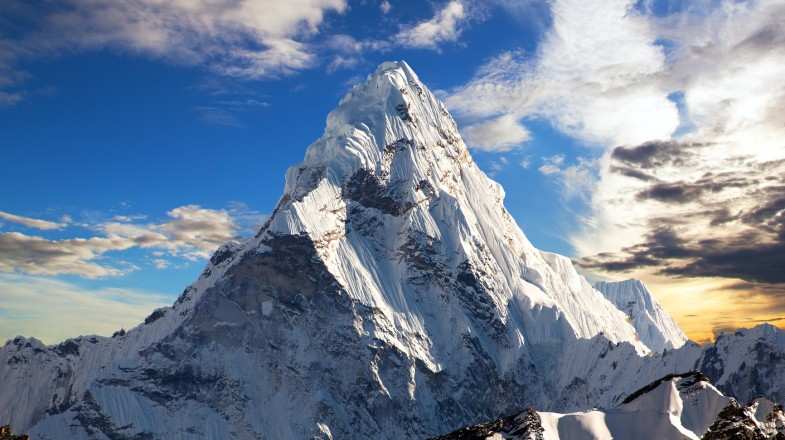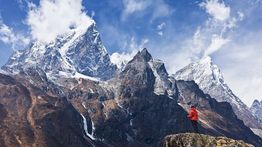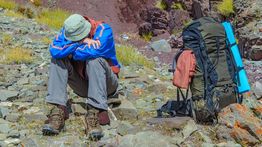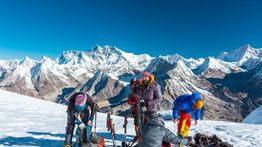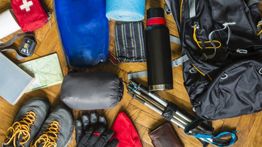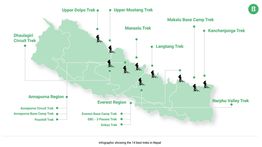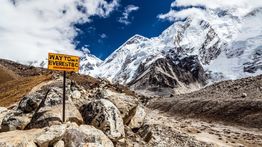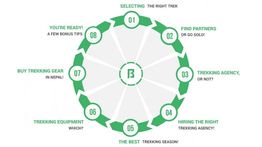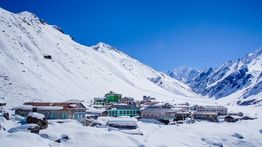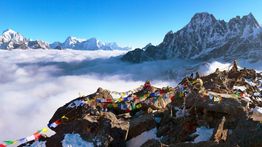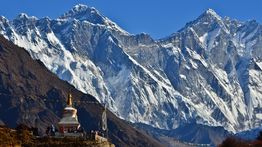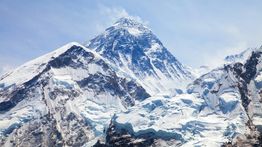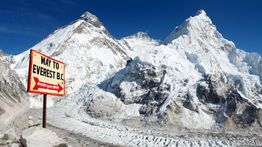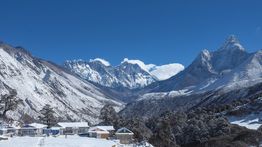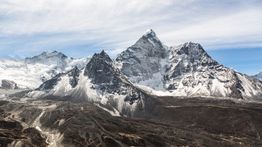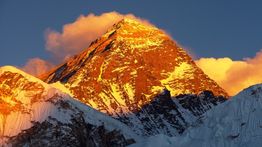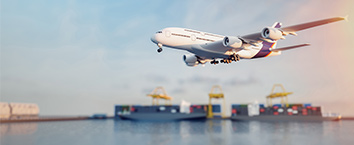How Much Does it Cost to Trek to Everest Base Camp?
The cost to hiking the Everest Base Camp depends on whether you do it independently or with a guide. Besides, the route you take, your food and accommodation, and many other factors also come into play. A classic trek that most trekkers end up doing (starting from Lukla) can cost around *USD 1,500. Luxury treks to Everest Base Camp may cost around USD 3,300–4,500 per head.
- Palsang Sherpa
- From Swaziland
What affects the cost to trek Everest Base Camp?
So how much does it cost to trek to Everest Base Camp? From the cost of trekking equipment and transportation to porter and travel insurance, here are the estimated cost breakdowns for the Everest Base Camp trek.
Cost of trekking equipment
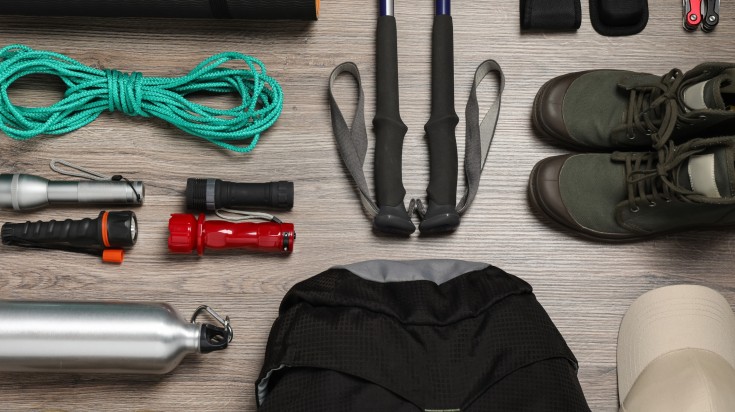
You can pick up hiking boots, down jackets and sleeping bags for real cheap in Thamel, but our advice is not to compromise on the quality. Weather and terrain conditions can be challenging in the Himalayas, and carrying robust and durable equipment makes sense.
Trekking equipment includes backpacks, trekking poles, polarized sunglasses, route maps, torch and spare batteries, and rain jackets. The equipment can also be rented. The entire trekking gear should cost you around *USD 300–500.
Cost of transportation

Trekkers usually fly from Kathmandu to Lukla, the starting point of most treks. The approximate flight cost for both ways is USD 364. The 30-minute flight is an adventure in itself but expect flight delays due to bad weather.
You can also take a bus or jeep from Kathmandu to Jiri or Salleri and start your trek from there. Treks from both these points eventually connect you to Lukla. A bus ticket costs USD 10 while renting a jeep could set you back by around USD 150.
For more details, check out our guide on how to get to Everest Base Camp.
Cost of accommodation
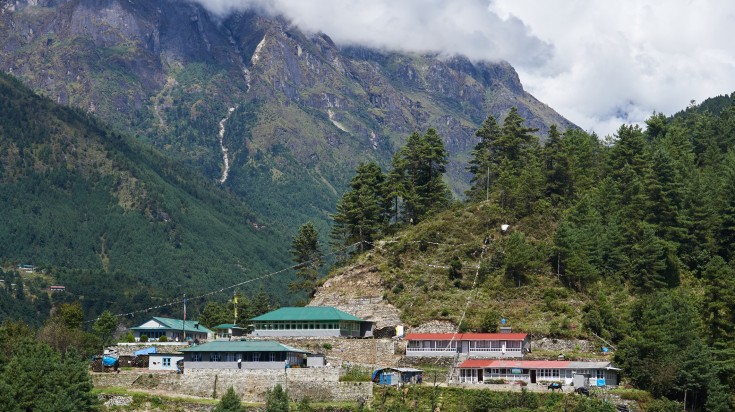
A basic hotel room in Kathmandu (pre-trek accommodation) could cost you up to USD 15. Taking a shared dorm is a cheaper option.
Your accommodation during the trek will be mainly basic lodges called teahouses. But if you have signed up for a luxury trek, you will stay in resorts in some places. Major points on the trek like Lukla, Phakding and Namche Bazaar have a greater choice when it comes to accommodation.
The daily accommodation cost varies between USD 5–20 for basic teahouses on a twin-sharing basis. So, your total accommodation cost comes out to be under USD 300 for a 15-day trek. Luxury accommodation can be upwards of USD 200 a night.
Cost of travel insurance
There are always risks involved when trekking along the Everest region. Even relatively minor injuries or lost luggage can be a logistical nightmare. Other potentially challenging situations include altitude sickness, accidents and flight cancellation. That is why you need insurance to mitigate all these risks. You can get reasonably good travel insurance to cover eventualities like emergency evacuation for just USD 150. We highly recommend it.
Cost of independent tour vs guided tour
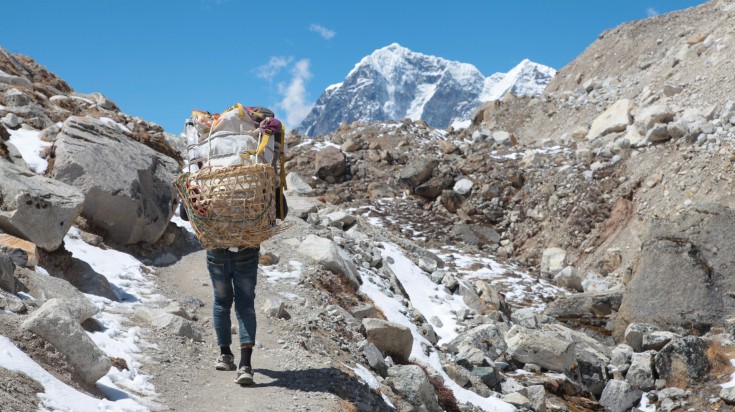
You can do a fully organized trek with a foreign company or a local (Nepali) company. Both treks will take care of arrangements, including accommodation and food in Kathmandu before and after the trek, flight to Lukla and back, porters, and lodging at teahouses during the trek (some companies cover trekking permits and food too).
The difference between a foreign company and a local one is about comfort level. You may have a foreign guide in the former and a Nepali guide in the latter. A fully guided trek should cost around USD 1,500–2,000 for a local and foreign company, respectively. Regarding independent treks, you can choose a guide, a porter, or a porter who doubles up as a guide.
The cost of an independent trek (with a guide or porter or both) ranges from USD 1,230–1,365. And, finally, you can do an entirely independent trek: carry your luggage and go up and back without support. This is the cheapest option, but we do not recommend it if you are not an experienced trekker. Doing an independent trek of Everest Base Camp can cost about USD 1,065, depending on how you spend your time in Kathmandu and your choice of food and accommodation.
Cost of porter
It is possible to carry your bags as you trek to Everest Base Camp, but if you want to enjoy the trekking experience without any additional weight (which can be 10–15 kilograms), it is better to hire a porter. Some porters double up as guides. Typically, a porter charges USD 15–18 daily and speaks basic English. A porter-cum-guide charges USD 20 per day. If you are a first-time trekker, a porter is recommended.
Cost according to the route
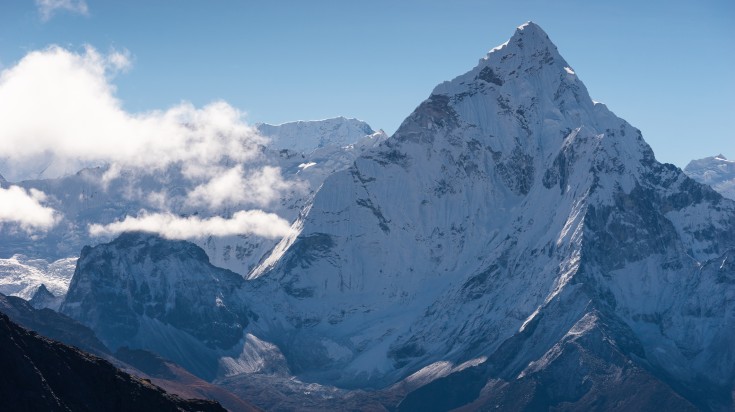
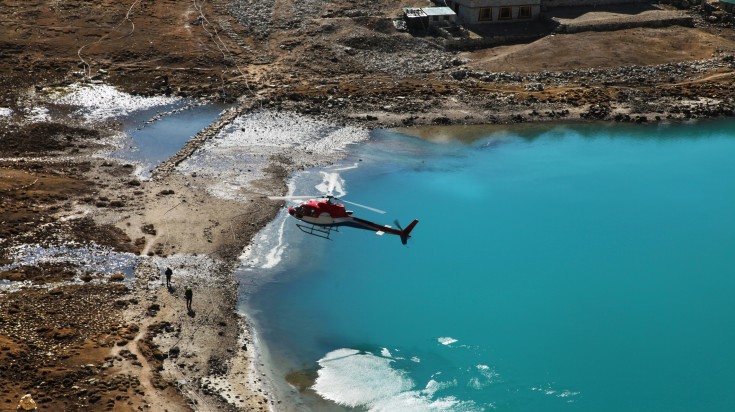
The cost of the trek varies depending on the route you take. Some popular routes are below:
- Classic Everest Base Camp route: This is the traditional route, one which most trekkers choose because companies pitch this to first-time trekkers. The trek starts from Lukla. The other key points on the trek include Phakding, Namche Bazaar, Deboche, Dingboche and Lobuche. The cost of a (non-luxury) Classic Everest Base Camp trek ranges from USD 1,100–1,500.
- Island Peak Climb route: The Island Peak Climb requires basic mountaineering skills like familiarity with ropes and crampons. Take the classic Everest Base Camp route for this trek, then move to Kala Patthar and Island Peak Base Camp via Khongma La Pass before climbing the Island Peak (6,198m). A regular Everest Base Camp plus the Island Peak trek can range from USD 2,000–4,000.
- Route from Jiri: You can also fly directly from Kathmandu to Jiri and start the trek from there. You will experience a different side of the Everest region between Jiri and Lukla. Once you reach Lukla, the trek merges with the classic trek. The total cost of the Jiri trek is USD 1800–2400, depending on the trekking company and group size.
- Three Passes Route: The Three Passes trek is more challenging than the classic trek and is meant for more experienced trekkers. You will travel to three spectacular passes: Kongma- La (5,550 m), Cho-La (5,420 m), and Renjo-La (5,360 m) on this route. You can make a detour to Everest Base Camp. The cost of the Three Passes trek is in the range of USD 1,500–2,100.
- Helicopter return: Trek to Everest Base Camp and fly back directly to Kathmandu in a helicopter. For this one, you do not need to trek back to Lukla. Though the helicopter return trip costs more than a standard two-way trek, it is a good way to experience the Everest Base Camp trek in a limited time. The helicopter return trek costs USD 2,700–3,000.
You can also choose to skip the trek altogether and do a spectacular helicopter tour of Everest Base Camp for USD 1,000 that starts from Kathmandu, refuels at Lukla, lands at Everest Base Camp and then fly back to Kathmandu via Lukla.
Other costs involved in an Everest Base Camp trek
The other expenses while trekking Everest Base Camp include permits for the trek, food and water costs, and tipping and personal expenses. While most companies cover accommodation expenses, permits and basic food costs are not always included. Check with your travel company so you are not in for an unpleasant surprise later.
Cost of permits to trek Everest Base Camp
Two permits are compulsory for the Classic Everest Base Camp trek—Khumbu Pasang Lhamu Rural Municipality Entrance Permit and Sagarmatha National Park Permit.
Foreign nationals can get the Khumbu Rural Municipality permit by paying a fee of *USD 16 per person.
Foreign nationals have to pay USD 24 per person to enter Sagarmatha National Park. But for SAARC nationals, the cost is USD 12, and for Nepalis, it is USD 1. There is also a 13% value-added tax (VAT).
So, the total cost of permits to trek Everest Base Camp for the classic trek is roughly USD 50, if you are not from a SAARC nation.
If you are starting your trek from Jiri, an additional permit called Gauri Shankar Conservational Area Permit (GSCAP) is required. This costs USD 16 + 13% VAT. For SAARC nationals, the permit cost is USD 2 + 13% VAT.
Cost of food and water during Everest Base Camp trek
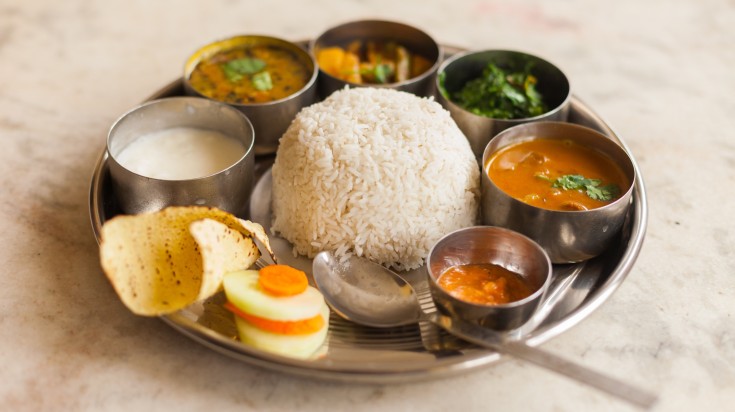
The price of food varies depending on what you are having. As you climb higher, food and water become more expensive. The simple but carb-heavy dal bhat (a local dish comprising rice, lentil soup, and a vegetable) is your cheapest and best bet. There are many other options: soups, momos, fried rice noodles and spring rolls. Western-style pasta, pizzas or chicken sizzlers are costlier. A not-so-fancy breakfast will cost you USD 3–6, while lunch or dinner (dal bhat) is USD 5–12. The cost of bottled water is anywhere between USD 1–4. Refills of boiled water, filtered water bottles, and purification tablets are practical alternatives to buying bottled water.
Tipping and personal expenses
A rule of thumb for treks in Nepal is you should tip around 10 percent of the guide/porter’s salary. That comes out to be USD 15 per day for the guide and up to USD 8 per day for the porter. (This is the total tip your entire group gives, not per person). Also, carry at least USD 100 in cash for miscellaneous expenses like buying extra snacks and water, accessing wi-fi, and taking hot showers.
*Note: The prices mentioned are for 2022 and are subject to change.
Our Recommendations

The trek to Everest Base Camp will be one of the most incredible experiences of your life. But that does not mean you should say yes to whatever quote a dubious trekking agency throws at you. You can save hundreds of dollars if you break down the costs and follow our advice and recommendations above.
Having said that, there are some things which you must not compromise on:
- Trekking gear: Trekking equipment is available for ridiculously low prices in the bazaars of Kathmandu, but avoid picking up very cheap and unreliable stuff.
- Porter and guide: For first-time trekkers, the expertise of guides and the convenience of porters are irreplaceable.
- Travel insurance: Weather conditions can change very quickly at these heights, sometimes for the worse. Good insurance coverage will rescue you in times of emergencies and sticky situations.
Now that you know the cost to trek to Everest Base Camp, it is time to plan this remarkable journey. Contact our local travel experts to build you a customized trip to Nepal.
